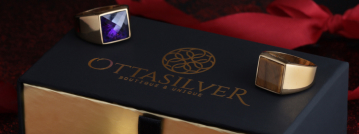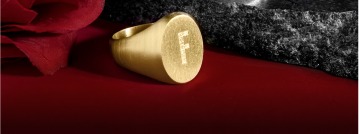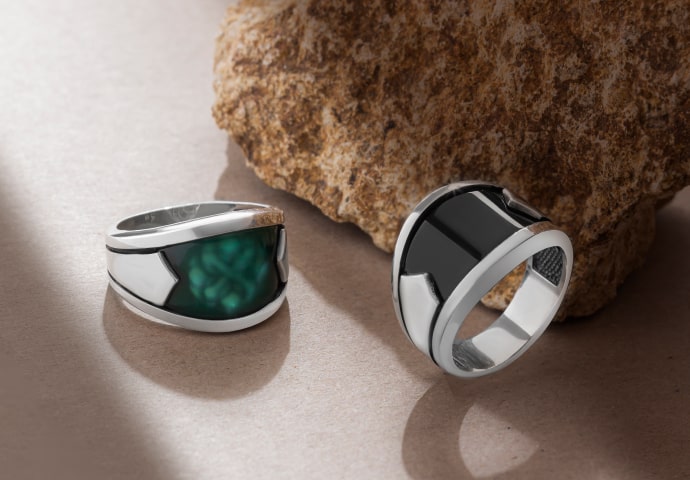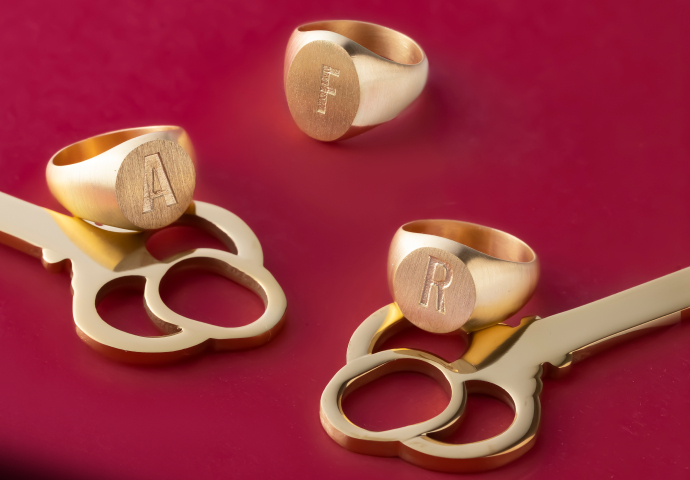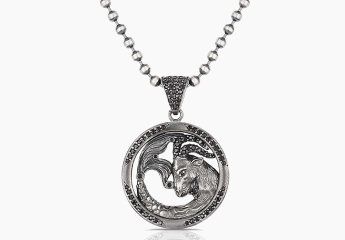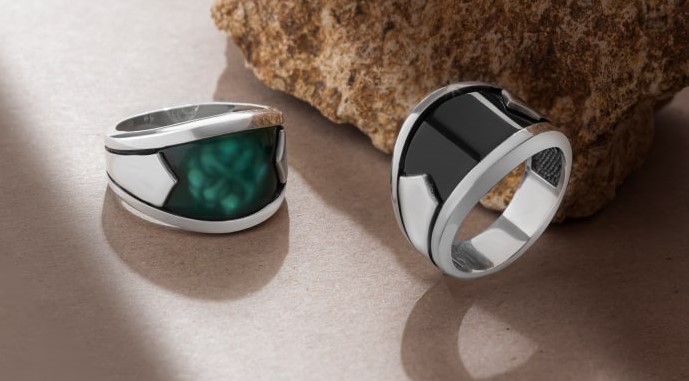
When it comes to men's jewelry, silver rings have always been a popular choice. They're versatile, stylish, and can easily be worn for both casual and formal occasions. However, with so many options available on the market, it's essential to understand the different types of silver and how to choose the best quality. In this comprehensive guide, we'll take a closer look at silver quality, what to look for when purchasing a silver ring, and how to care for your new piece of jewelry.
I. Types of Silver
Sterling Silver (92.5% Silver, 7.5% Other Metals)
- Pros: More durable than fine silver, resistant to tarnishing, widely used in jewelry
- Cons: Slightly less pure, may cause allergic reactions in some individuals
Silver-Plated
- Pros: Affordable, provides the appearance of silver
- Cons: Easily wears off, may expose base metal, not suitable for long-term use
Argentium Silver (Higher Silver Content and Germanium)
- Pros: Highly tarnish-resistant, hypoallergenic, more durable than sterling silver
- Cons: More expensive, less common
II. Hallmarks and Stamps
What are hallmarks?
- Hallmarks are small symbols stamped onto silver jewelry to indicate its purity and origin.
Common silver hallmarks
- 925: Sterling silver (92.5% purity)
- 958: Britannia silver (95.8% purity)
- 950: French 1st Standard silver (95% purity)
III. Choosing a Quality Silver Ring
Check for hallmarks
- Look for the appropriate hallmark to ensure the silver's purity.
Examine the craftsmanship
- Inspect the ring for any signs of poor workmanship, such as uneven surfaces, gaps, or rough edges.
Consider the design
- Choose a design that suits your personal style and preferences.
Evaluate the thickness and weight
- A quality silver ring should have a substantial weight and thickness, indicating a higher silver content and durability.
Assess the price
- Compare prices among various retailers and consider the quality of the silver, craftsmanship, and design.
IV. Caring for Your Silver Ring
Cleaning
- Use a soft, lint-free cloth to gently clean your silver ring, removing dirt and oils.
- For deeper cleaning, use a mild soap and water solution or a specialized silver cleaning product.
Storage
- Store your silver ring in a cool, dry place away from direct sunlight.
- Keep it in a soft pouch or lined jewelry box to prevent scratches.
Regular maintenance
- Check your ring for any signs of damage or wear, and take it to a professional jeweler for repair if necessary.
Avoid exposure to chemicals
- Remove your silver ring before engaging in activities that may expose it to harsh chemicals, such as swimming or cleaning.
Conclusion
Understanding the different types of silver and their respective qualities is crucial when shopping for men's silver rings. By considering the factors outlined in this guide, you'll be well-equipped to choose a high-quality silver ring that suits your personal style and will last for years to come. With proper care and maintenance, your silver ring can remain a timeless accessory that adds a touch of elegance to any outfit.

